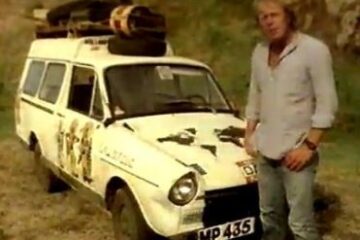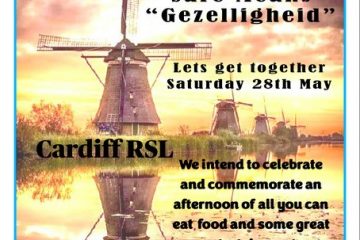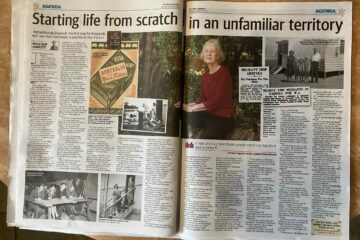Lia van Haren
Lia van Haren has been a long-standing volunteer at the Dutch Australian Cultural Centre (DACC), beginning her service in 2009. Before this, she had little involvement with Dutch organisations in Australia, having assimilated quickly into the broader community after migrating with her family in 1950. Her family’s Dutch connections centred around occasional community activities such as Mass for Dutch-speaking migrants, the Neerlandia soccer club, and the Dutch Australian Society Neerlandia. In 1958 Lia became a member of an Australia religious Community and for many years had no contact with Dutch Communities or Dutch Cultural activities.
Professionally, Lia is a trained archivist. She served as archivist for her religious order, the Good Samaritans, and has been the driving force behind the preservation and organisation of the DACC’s Archival and Library collections. Her expertise ensured that the DACC library was arranged according to the Dewey System. The organisation of the library was handed over to Coby Black who, as time went on introduced an online database, CLZ.com, which continues to be in use today. Lia’s experience extends beyond Australia — she helped to set up a library for a Benedictine Monastery in Tanzania and organised a small library of English books in a congregational school in Japan.
Her commitment to the DACC reflects both her personal heritage and her professional calling. She combined her archival expertise with her passion for community heritage, creating the foundation for the Centre’s archival and library systems, and making its collections accessible for present and future generations.
Lia van Haren’s Archival Work
At the DACC, Lia van Haren undertook the systematic organisation and cataloguing of a wide range of Dutch community records. When she began, the holdings were stored in boxes and largely unprocessed. She committed herself to archiving these collections one organisation at a time, documenting the history of Dutch cultural, social, and charitable life in New South Wales and beyond.
Her work encompassed the archives of:
- The Holland Festival (1982–1998) — documenting volunteer-driven cultural events.
- The Netherlands Society of NSW (1944–1986) — with records on cultural, charitable, and social activities.
- The Federation of Netherlands Societies (1967–2000s) — including initiatives such as aged care projects, receptions for royal visits, and community advocacy.
- NESWA (Netherlands Ex-Servicemen and Women’s Association) — preserving stories of veterans, memorial projects, and ANZAC participation.
- The Queen Wilhelmina Benefit Fund (1903–2000) and Benevolent Trust Fund (1981–2003) — which merged in 2000 to aid Dutch migrants in need.
- The DACC itself — covering exhibitions, publications, newsletters, and educational programs.
She also processed smaller collections such as those from regional Dutch societies, choral groups, publishing initiatives, and personal migrant stories. Through this careful archival work, Lia van Haren safeguarded a rich historical record of Dutch migration, community life, and cultural contributions to Australia, ensuring accessibility for future research and commemoration.
It is estimated that Lia spent over 3,500 hours of work on these archives between 2009 and 2025. While Lia undertook more than 95% of the work, she was often assisted by Paulus Breedveld. Others also contributed at different times: Coby Black focused on the library collection, Gerard Haanstra worked mainly on the library before Lia’s arrival, Peter Tarmac did some initial archival work prior to and shortly after she joined, and Glen op den Brouw collaborated with her on the archives for a brief period.
For a full overview see Lia’s report below that she presented at the DACC November 2018 AGM when she received the Anton Kool Award from Mr Jan Joosten President of the Federation of Netherlands Societies.
In her report she also refers to the booklet: Short history of and information on Netherlands Societies in NSW and the ACT.
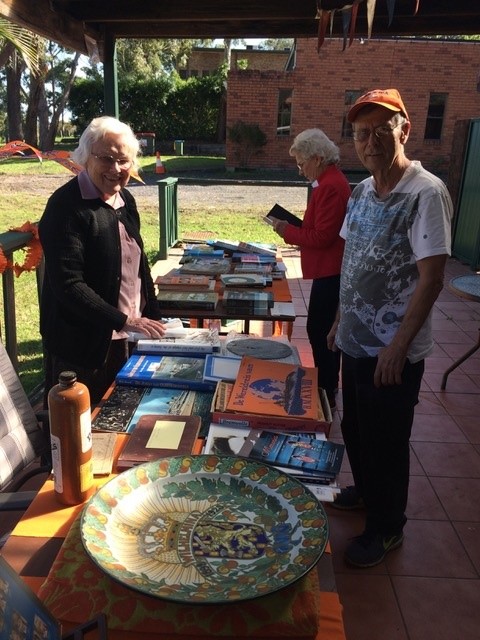
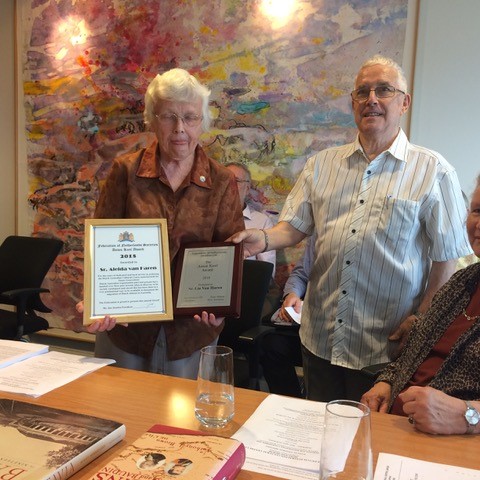
Here is a full list of the documentation archived by Lia van Haren
